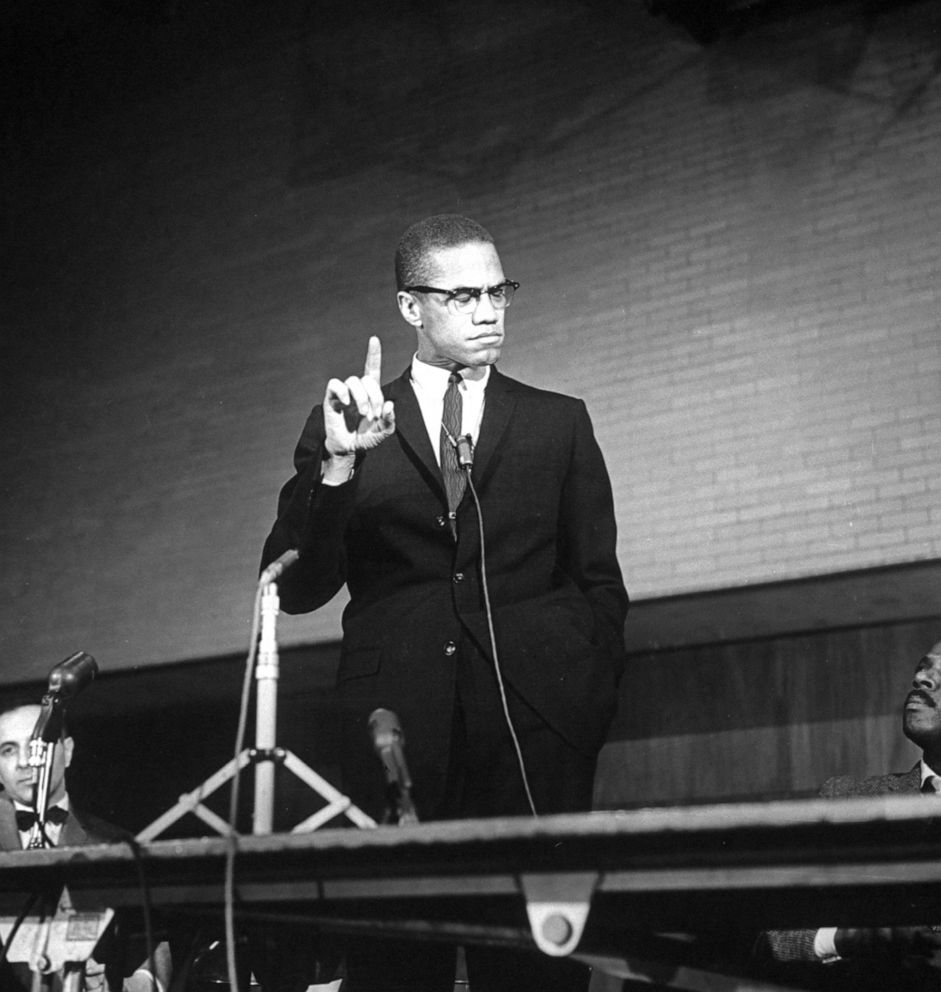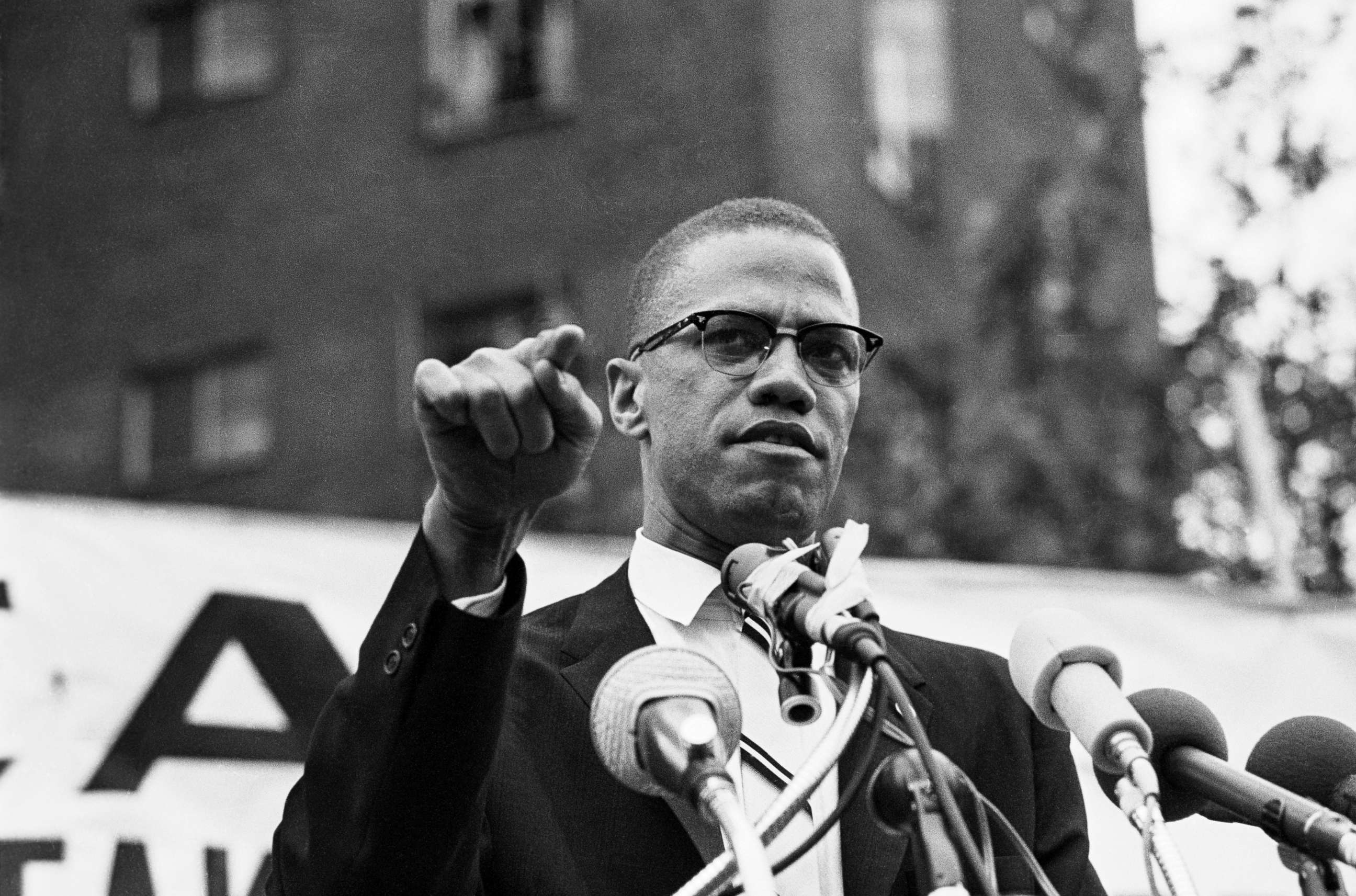New claims surrounding Malcolm X assassination surface in letter written on former NYPD officer’s death bed
"I have carried these secrets with a heavy heart," Ray Wood wrote.
New allegations surrounding the death of Malcolm X have surfaced in a letter written by a former New York City Police Department officer on his death bed.
On Jan. 25, 2011, Ray Wood, who was serving as an undercover police officer on the day of Malcolm X's death, wrote a letter in which he admitted he "participated in actions that in hindsight were deplorable and detrimental to the advancement of my own black people."
When Wood was hired by the NYPD in 1964, his job was to "infiltrate civil rights organizations" to find evidence of criminal activity so the FBI could discredit the subjects and arrest its leaders, Wood wrote in the letter obtained by ABC News.
Wood's handler devised the arrest of two of Malcolm X's "key" security detail members in a plot to bomb the Statue of Liberty days before his 1965 assassination, Wood wrote. The plot involved three members of a Black "terrorist group" and a Canadian woman who were planning to dynamite the Statue of Liberty, the Liberty Bell and the Washington Monument, the New York Times reported on Feb. 16, 1965.
"It was my assignment to draw the two men into a felonious federal crime, so that they could be arrested by the FBI and kept away from managing Malcolm X's door security on February 21, 1965," Wood wrote. "... At that time I was not aware that Malcolm X was the target."

Malcolm X was assassinated in Manhattan's Audubon Ballroom while addressing the Organization of Afro-American Unity on Feb. 21, 1965. Three members of the Nation of Islam were convicted of his murder.
Wood alleged in the letter that "his actions on behalf of the New York City Police Department (BOSSI) were done under duress and fear," adding that he could have faced "detrimental consequences" if he did not follow the orders of his handlers.
"After witnessing repeated brutality at the hands of my coworkers (Police), I tried to resign," he wrote. "Instead I was threatened with arrest by pinning marijuana and alcohol trafficking charges on me if I did not follow through with the assignments."
Wood wrote that, as he faced failing health, he was concerned that the family of Thomas Johnson, one of the men convicted of killing Malcolm X, would not be able to exonerate him after Wood died. Johnson was arrested at the Audubon Ballroom the night Malcolm X was killed to protect Wood's cover and "the secrets of the FBI and NYPD," Wood wrote.
Wood placed his full confession into the care of his cousin, Reginald Wood Jr., and requested that the information be held until after his death.
"It is my hope that this information is received with the understanding that I have carried these secrets with a heavy heart and remorsefully regret my participation in this matter," Wood wrote.

Wood's cousin, who wrote the book "The Ray Wood Story," published earlier this month, described Wood to "Good Morning America" as a "good man that was tricked and forced to betray his own people."
"And he felt ill and remorse for that," Reggie Wood said.
Last year, the New York City district attorney's office launched another investigation into Malcolm X's death and those convicted after the documentary "Who Killed Malcolm X?" aired on Netflix.
In response to an ABC News inquiry, the Manhattan District Attorney's office stated, "Our office's review of this matter is active and ongoing."
NYPD spokeswoman Sgt. Jessica McRorie said in a statement that the NYPD has provided "all available records relevant to that case" to the district attorney's office.
The FBI did not respond to ABC News' request for comment.
Civil rights attorney Benjamin Crump described the review into Malcolm X's death as restorative justice.
"This is the only way we can bridge this divide," Crump told "GMA." "We have to have transparency, present accountability, and that's the only way we'll ever get to trust."
Derrick Johnson, president and CEO of the NAACP, told "GMA" that "far too many African Americans who have stood up, who voice equality and justice in this country, have found themselves being persecuted, prosecuted or, in the case of Malcolm X, assassinated."
ABC News' Sabina Ghebremedhin, Aaron Katersky and Samara Lynn contributed to this report.




